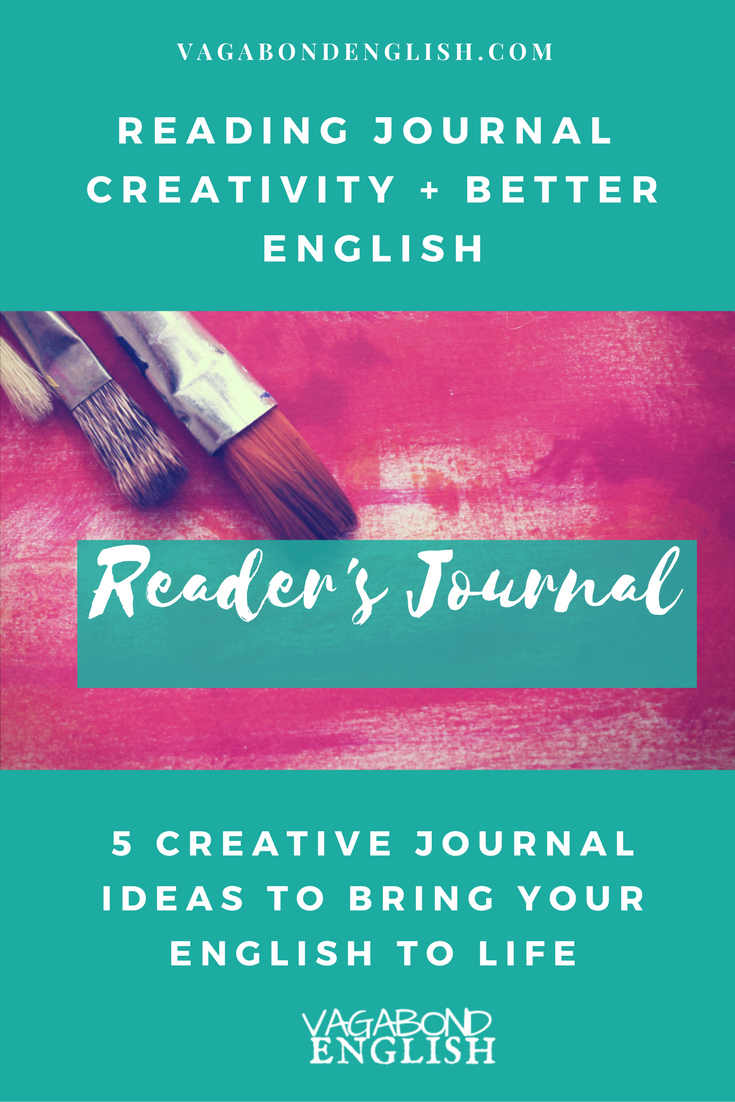This post is part of a series--Think Before You Speak--that tells you how to use your book habit and reader's journal to make English yours. You can find the introduction here, and read about using your journal for fluency in English here or read about journaling for more elegant (and accurate) English here.
With each blog post, there is a mission for you to complete. By the end of this series, your reader's journal will be well on it's way to changing your relationship with English.
Why you shouldn't choose between your passions and your English.
Time is our most precious currency. It makes us choose, select, edit. What stays? What goes?
Who are we, in the end? The way we spend our most valuable currency--our time.
To put it bluntly, if you think you have to choose between the challenge of making English your own and your other passions--you'll have to pick one or the other.
The way I see it, you have to choose both.
If you love books, if you can't imagine life without reading, then pick up your book in English and you've just found a way to engage two passions at once--to beat time.
The same is true for your reader's journal. Incorporate more of what you love into what you're already doing.
Never forget: engaging in an activity that is more challenging, more creative (or more you) in English is not a distraction form improving your English.
Challenging yourself, pushing yourself to use English in new and creative ways is essential to your progress.
Your Reader's Journal--not just for English, not just for books
You don't have to choose between your passions, your creativity, your personal development and your progress in English.
Give yourself permission to make connections, to let your reader's journal help you branch out and link your reading, your English to other aspects of your life.
Are you thinking that's somehow not allowed? That you shouldn't
- draw or doodle in your journal
- let your mind wander towards your personal life
- make up and tell a story of your own
- add a few photos, turn to another art form altogether for inspiration
Give yourself more room for creativity and learn more.
I want to tell you that, as a teacher in the State of California, my colleagues and I spent hundreds of hours together and alone trying to find ways to help our students connect what they were learning with their own experiences, their passions, their creativity, with the world around them.
Why would we do that? Because we wanted our students to be happy or to have more fun? Or because we wanted to motivate them more?
Nope, those were just lucky side-effects!
We wanted our students to find these connections because integrating what we love, who we are and what we already know is THE most effective way to learn.
Give yourself permission to branch out and try something new and different when you're using your reader's journal.
Reading and writing inspiration just for you. Get short stories plus creative writing prompts to help you find your voice.
You are not off topic. You are not daydreaming. You are not being lazy or selfish.
You are learning as human beings were meant to learn.
Your English will thank you! And you might find that keeping this kind of a journal has many happy and unintended side effects.
5 Ways to bring creativity and personal connection to your reader's journal:
One: Draw, doodle, illustrate.
If you love drawing, sketching and doodling, don't leave it out of your reading journal.
Not an artistic person, orsomeone who likes to draw?
You would be shocked at how much more you can remember when you take the time sketch what you imagine or what you're trying to learn. . .
Draw a picture that goes with new expressions you want to remember. Draw a scene from your book, draw a character or a place. If you're new to drawing and it feels weird (or you think it looks weird), don't worry. It's still helping!
Two: Collages, photos, mixed media.
Not into drawing? Perhaps you are more of a photographer or a collage-type of person. It's not just fun, it helps you learn. It helps you paint a picture of what you read, it helps you understand and remember.
Gather some images that speak to you. Then write about what you see.
If you're a computer person, perhaps you might enjoy creating a mood board in Pinterest. I did that to help me imagine life in Brooklyn in the 1970s as I read Another Brooklyn, by Jacqueline Woodson. See the board here.
Three: Make it personal.
Have you ever read a story or book and felt such a strong visceral reaction that you knew it was your story too?
Write your story down.
Making a story your own is not selfish or petty--it's a way of making the book (and it's language) unforgettable to you.
And writing your story based on what you've read will challenge you to use your English not just to read and understand, but to invent.
Four: Make up a story of your own.
Don't think you're a writer?
Since when do you need someone else's permission to do something that humans have been doing since the dawn of time?
Tell a story!
Why? Because when you tell a story, or when you write one, you relive the lessons from your book in a whole new way. You get more out of what you read. You learn from the experience. You learn from the language.
It's more difficult, more cognitively challenging than just reading the story again or looking over your list of vocabulary words.
Five: Connect to other passions, other disciplines.
Does your reading remind you about something you're passionate about today? A cause? A pastime? Your culture? Your family? Connect the ideas. Write about them too.
I don't consider myself to be much of a philosopher, but that doesn't stop me from having some deep reactions to what I read--and it shouldn't stop you either.
Write about those reactions in English and see how it broadens your horizons in the language.
Your Mission:
Don't worry about doing all of these at once! Instead do this:
- Write in your reading journal for 15 minutes 3-4 times a week as described here.
- Pick ONE of the five ways to bring your English to life and do that on one day as part of your regular journal time.
If you feel inspired you can try a different technique each week, or try more than one in a week.
But starting out with just one creative journal entry a week, will be an effective way to do something new with your English!
What do you think?
Do you consider yourself to be a creative person? In what ways do you like to express that creativity?
Do you have a passion, a pastime or a commitment that is important to you? What is it?
Do you ever see connections between books you read and your life? The world? Other works of art? Other ideas?
Do you have an easier time learning through an activity you enjoy (like reading) than through repetition (such as grammar study)?
Share your ideas in the comments below or join the conversation in our Book Club on Facebook.



